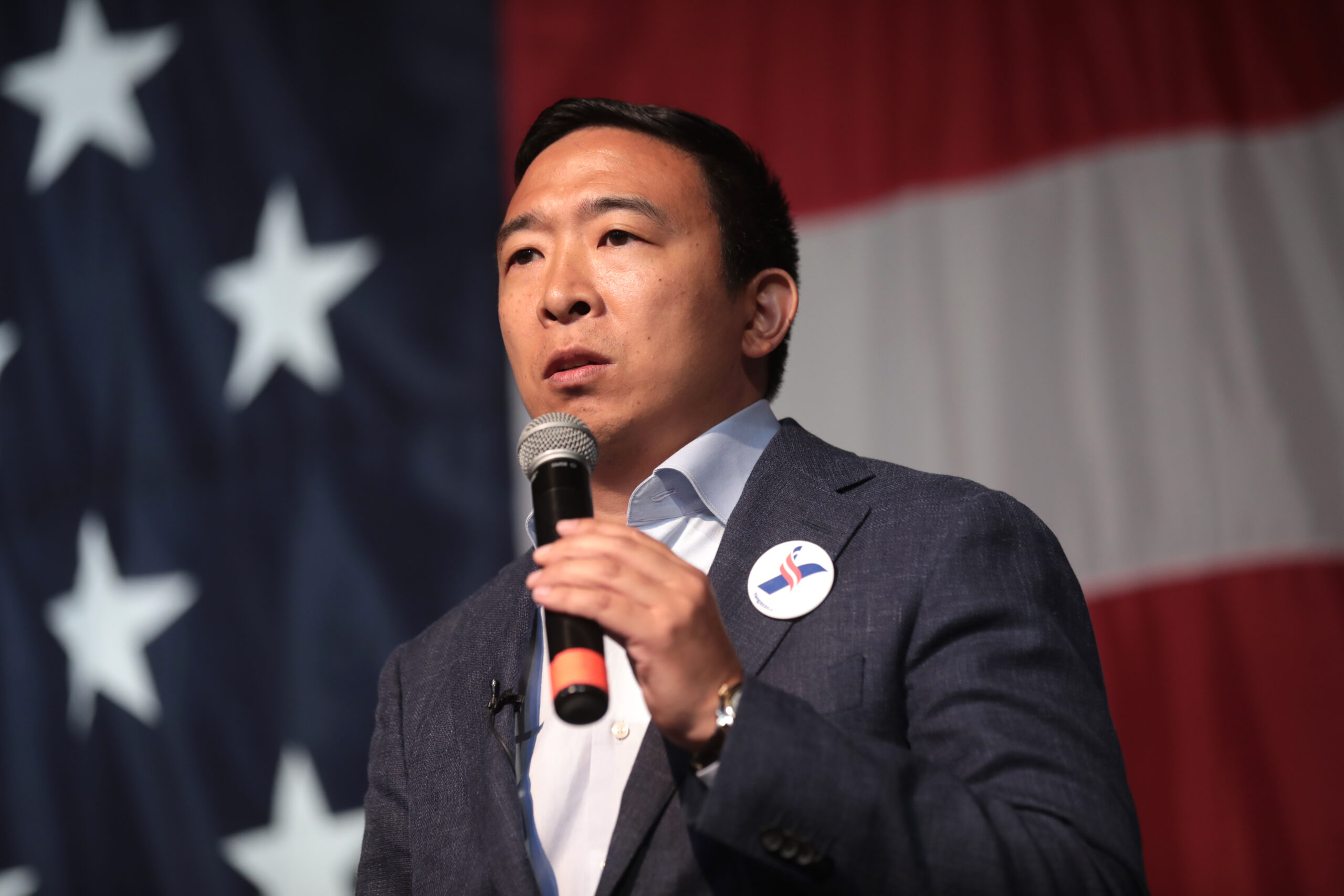As the polls closed in New Hampshire and the vote count began, two of the eleven Democrats still in the race for the presidential nomination saw the writing on the wall for their presidential ambitions: Andrew Yang and Senator Michael Bennet. Both announced the cessation of their campaigns.
The two candidates couldn’t have been any more different.
Yang is an Asian-American entrepreneur who has never held elected office, who used his nerdy, technocratic persona (his slogan was “Make America Think Again,” or MATH for short) to garner loyalty from a net-centric group of supporters that dubbed themselves ‘The Yang Gang.’

Bennet is a United States Senator from Colorado who made the traditional American politician’s journey: starting his career as a lawyer, moving through various political jobs, and eventually being appointed to the Senate.
Yang offered a heretofore unheard-of idea as his signature policy – a sweeping reform of the federal budget which would center around a Universal Basic Income of $1,000 per month for for every American.
He called it “the Freedom Dividend.”
Yang pitched his idea (which is largely untested, besides a trial program in Finland) as a safety net for workers caught on the wrong side of the Fourth Industrial Revolution – a term that describes the vast changes that innovations such as artificial intelligence and automation are bringing to the global economy.
Bennet, by contrast, portrayed himself as the arch-neoliberal candidate, constantly warning Democrats about the putative dangers of pulling the party too far to the left. His promised ”Real Deal” agenda of neoliberal policies and the inevitable pledge to “fix Washington” made Bennet’s campaign seem like it had dropped straight out of the Democratic playbook of the 1980s.
Despite their different personas and proposed policies, both candidates chose the moments following the close of the polls in New Hampshire to exit the race.
Yang laid out his reasoning to his supporters in New Hampshire very directly, as primary results from the state rolled in: “I am the math guy, and it’s clear from the numbers that we’re not going to win this campaign.”

Bennet’s reasoning for choosing this moment is more opaque – after all, his campaign has barely been noticed by anybody for more than a year now, yet he hung in there until tonight. At least Andrew Yang has been qualifying for the debates up until now – Bennet’s dismal polling excluded him from sharing the debate stage with his rivals beginning with the third round of debates.
Bennet’s withdrawal is unlikely to shake up the Democratic field in any way, because like John Delaney, he had essentially become invisible.
However, Yang dropping out of the race might have a significant impact.
Yang’s supporters were attracted to his unusual style and radical, forward-looking policy ideas; they are unlikely to choose to support candidates such as Joe Biden who center their appeal around a “return to normality.”
They are more likely to switch their support to one of the two progressive leaders in the race for the nomination, Bernie Sanders or Elizabeth Warren.
Former Yang supporters could play a key role in upcoming Democratic nominating events. Yang commanded between 3% and 4% of the Democratic electorate nationally. If Warren were to receive Yang’s support, or even a fraction of it, it would be a shot in the arm to her campaign, which is currently seeking a change to the narrative of her poor performances in both Iowa and New Hampshire.
However, if Sanders were to receive those supporters it could prove an influential development in his battle with Pete Buttigieg – in the first two states to vote, the U.S. Senator from Vermont only barely scraped above the former Mayor of South Bend in the final vote tally. If Sanders attracts Yang supporters, it could strengthen his position in the next few states holding nominating events.

